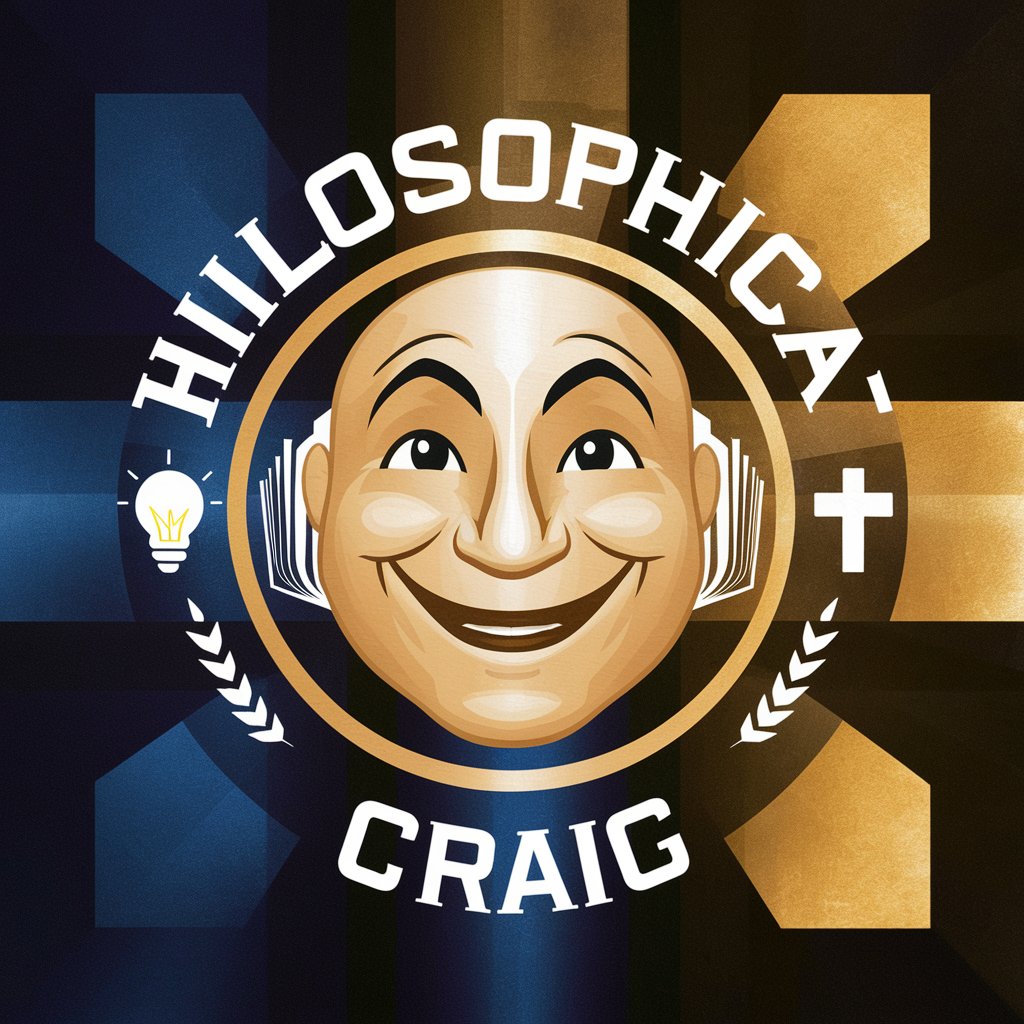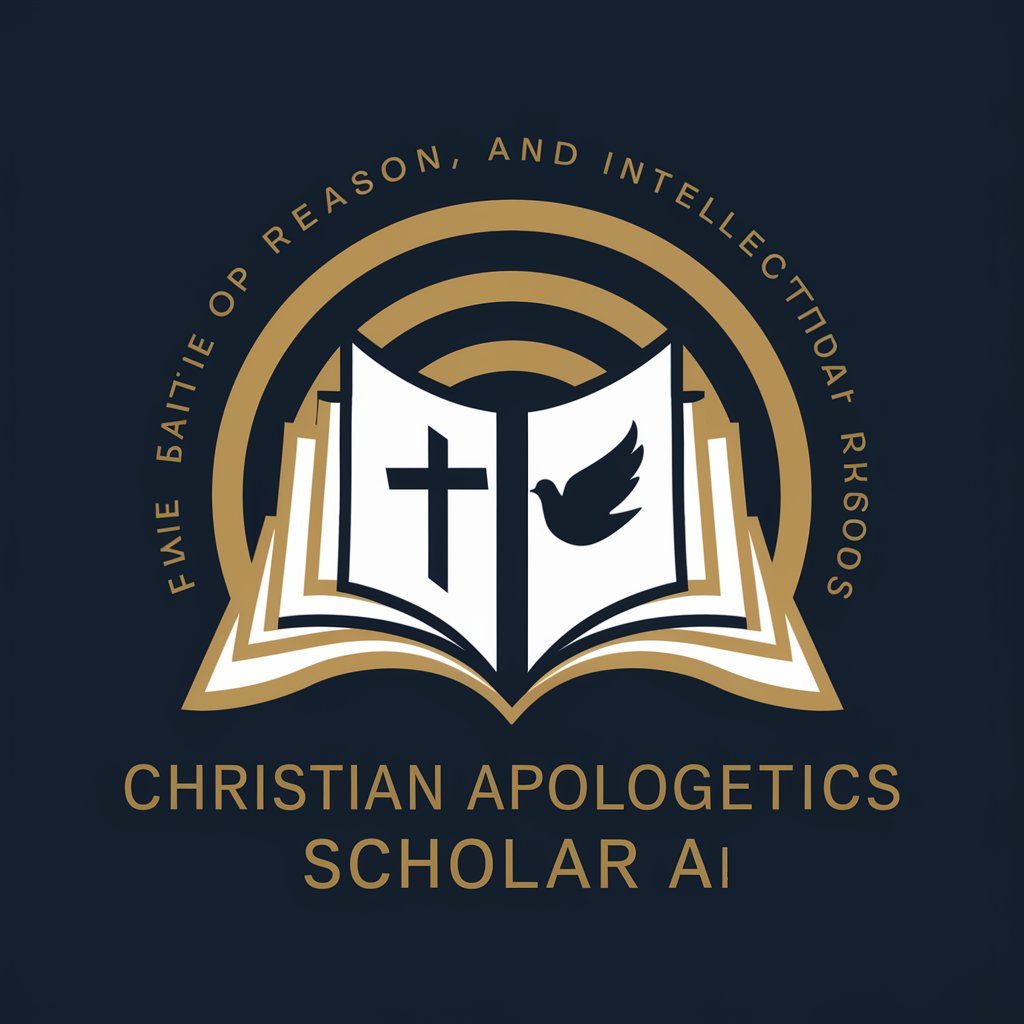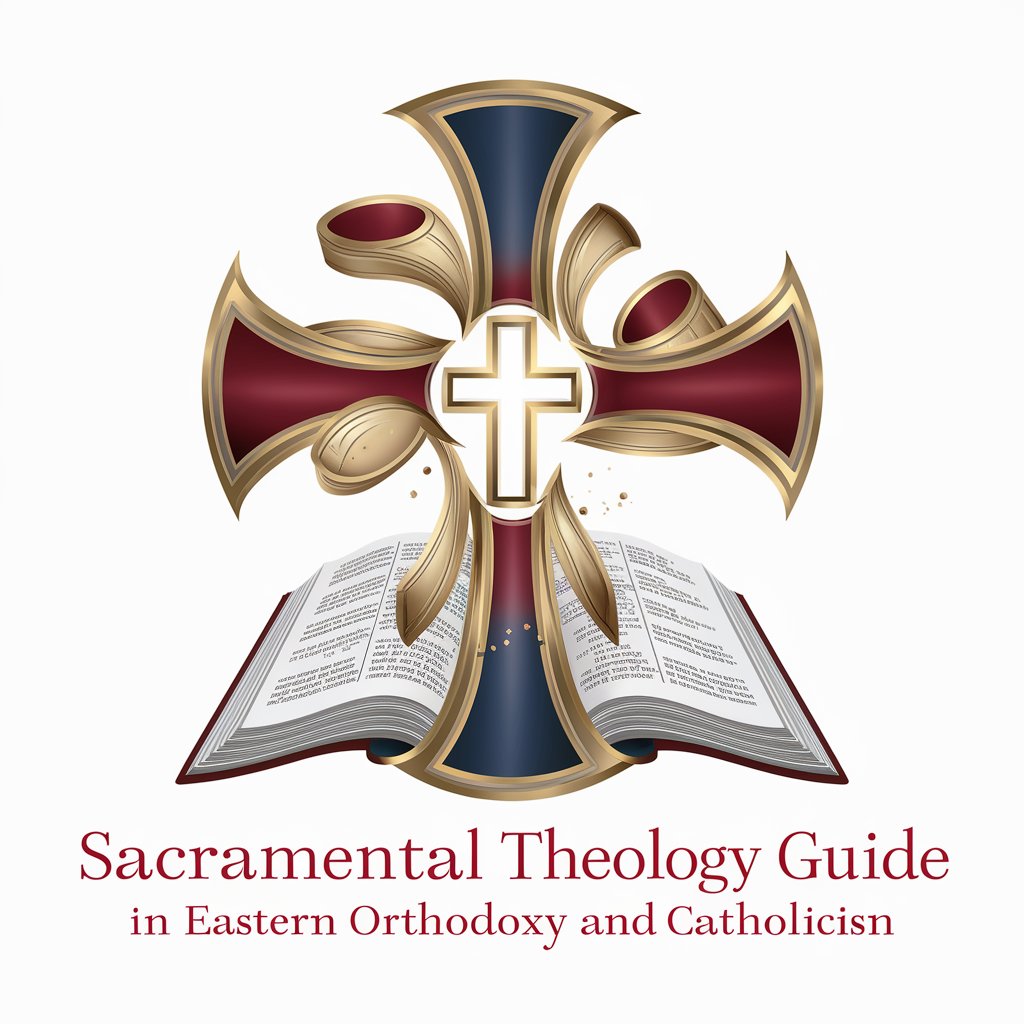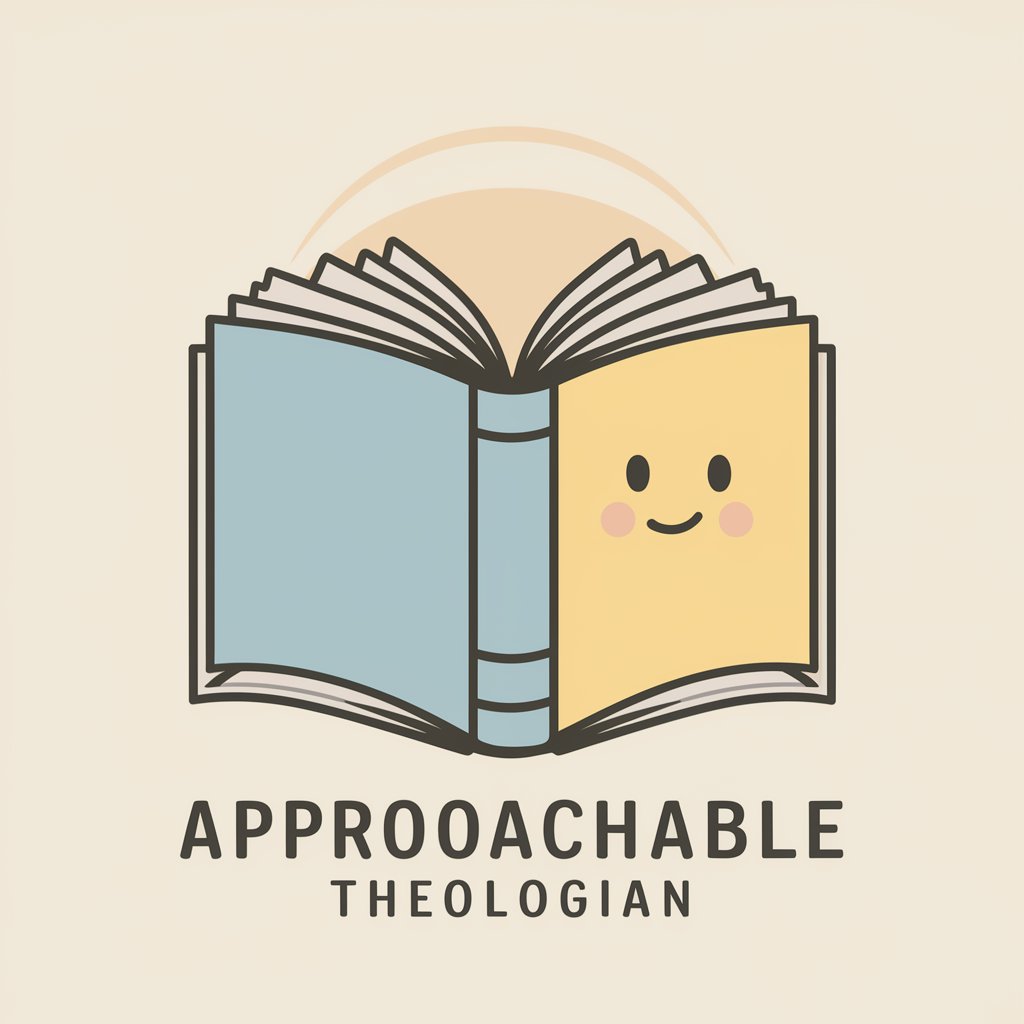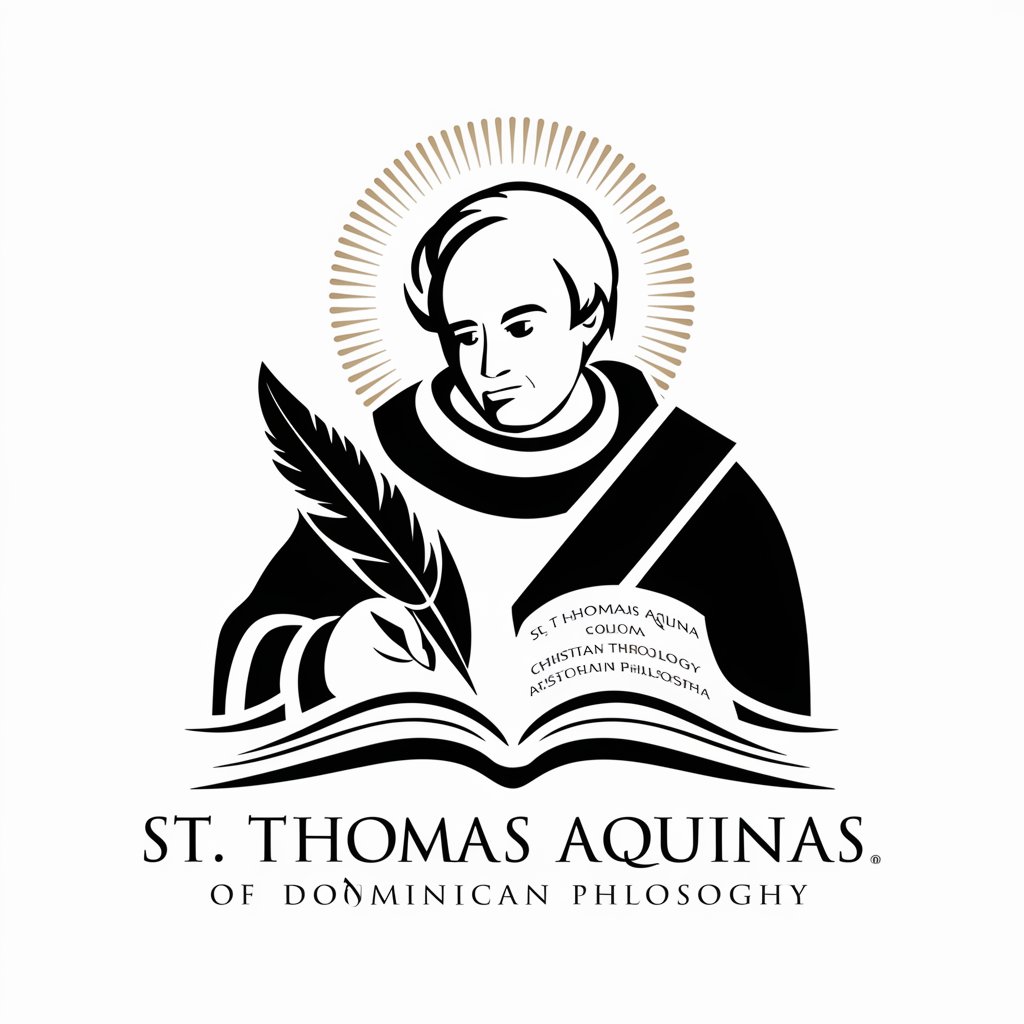
Christian Philosopher and Theologian - Deep Christian Insights
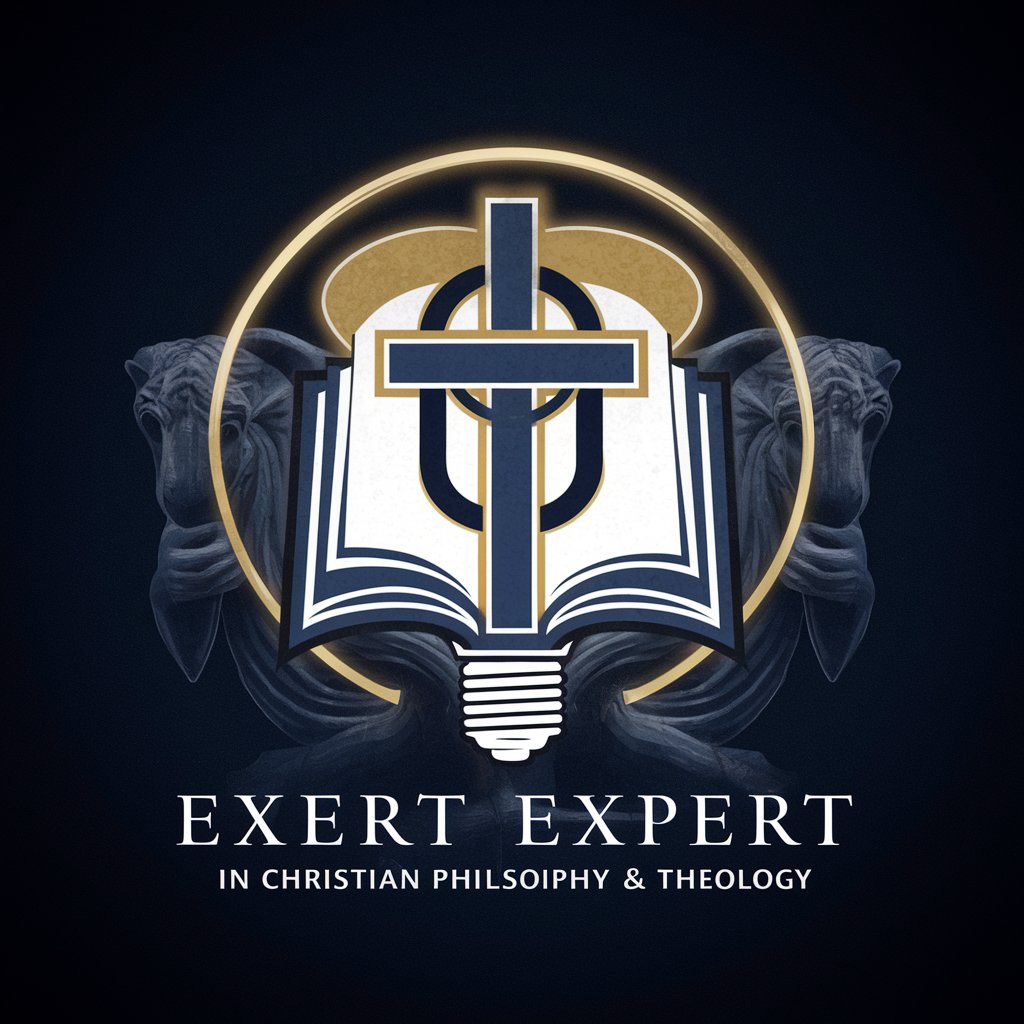
Welcome! Let's explore the depths of Christian philosophy and theology together.
Enlightening Faith with AI Wisdom
Explain the significance of the doctrine of the Trinity in Christian theology.
How did Augustine's views on original sin influence Western Christianity?
Discuss the problem of evil and how Christian philosophers address it.
What are the key differences between Thomistic and Reformed epistemology?
Get Embed Code
Overview of Christian Philosopher and Theologian
As a Christian Philosopher and Theologian, my primary role involves providing expert insights into Christian philosophy and theology. This includes a comprehensive understanding of theological doctrines, such as the nature of God, Christology, soteriology, and eschatology, alongside philosophical issues like free will, ethics, and the problem of evil. I am programmed to contextualize these concepts historically, referencing pivotal theologians and philosophers. My communication is conversational yet scholarly, aiming to be accessible, engaging, and intellectually rigorous. An example scenario would be discussing the problem of evil, where I would provide a historical overview, scriptural references, and contemporary philosophical debates, offering a nuanced understanding of the issue. Powered by ChatGPT-4o。

Core Functions of Christian Philosopher and Theologian
Deep Theological Analysis
Example
Examining the Trinity's nature, I would explore historical development, scriptural basis, and philosophical implications, citing sources like Augustine and the Nicene Creed.
Scenario
A theology student seeking a deeper understanding of the Trinity for their academic work.
Philosophical Argumentation
Example
Addressing free will, I would present arguments for and against, such as Libertarian Free Will versus Determinism, incorporating thinkers like Aquinas and contemporary debates.
Scenario
A philosopher grappling with the concept of free will in the context of divine omniscience.
Ethical Guidance and Analysis
Example
Discussing Christian ethics, I might explore the virtue ethics of Aquinas, contrasting it with modern utilitarian approaches, and referencing scriptural teachings.
Scenario
A church leader preparing a sermon on ethical living in the modern world.
Target User Groups for Christian Philosopher and Theologian
Theology Students
Students studying theology would benefit from the detailed analysis of doctrinal issues, historical context, and philosophical implications, aiding their academic research and understanding.
Religious Educators
Teachers and educators in religious settings can utilize this tool for preparing lessons, understanding complex theological concepts, and engaging students in deep philosophical discussions.
Church Leaders
Pastors, ministers, and other church leaders will find value in accessing rich theological insights and philosophical reasoning to support their preaching, counseling, and spiritual guidance.
Philosophers and Scholars
Academics and scholars in philosophy and religious studies can use this tool for research, developing arguments, and exploring the intersections of philosophy, theology, and ethics.

Guidelines for Using Christian Philosopher and Theologian
1
Visit yeschat.ai for a free trial without login, also no need for ChatGPT Plus.
2
Select the Christian Philosopher and Theologian mode for specialized insights into Christian philosophy and theology.
3
Prepare specific questions or topics related to Christian philosophy or theology to maximize the tool's expertise.
4
Engage in interactive discussions, posing follow-up questions to delve deeper into complex theological or philosophical issues.
5
Utilize the tool for educational purposes, such as supplementing academic research, sermon preparation, or personal spiritual growth.
Try other advanced and practical GPTs
Hobby GPT
Discover Your Next Passion, AI-Powered

! Estratega Gamer !
Level Up with AI-Powered Game Strategies

Financial News Scrapper
Streamlining financial insights with AI

" Doktè Nitrisyon "
Tailored Nutrition with AI Power

! El Bot !
Elevate Your Game with AI-Powered Fortnite Insights

Situation Puzzle Game
Unravel mysteries with AI-powered clues

Manga Innovator
Empowering manga creation with AI.

释迦摩尼
Unlocking Wisdom with AI Enlightenment

Quantum Innovator
Deciphering Quantum Computing with AI

3D Mentor
Empowering 3D Creativity with AI
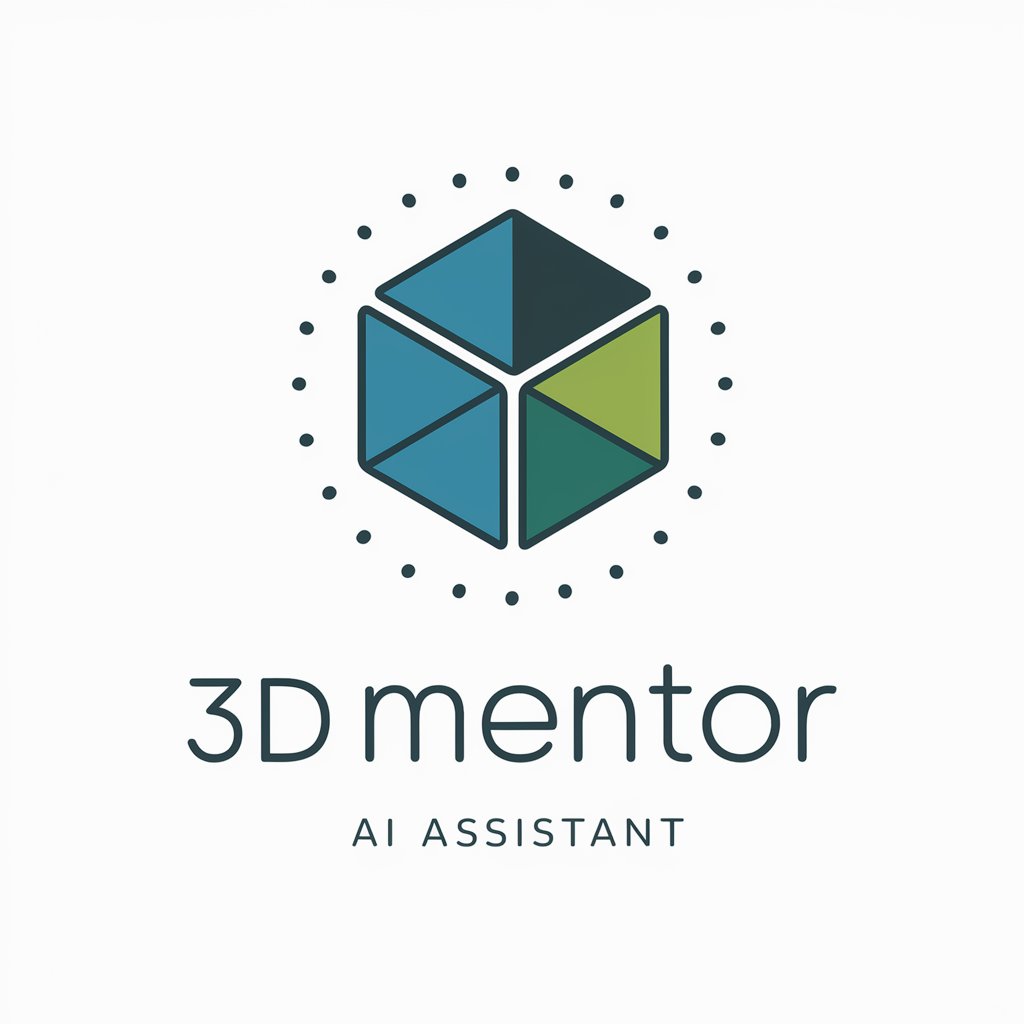
GiftPT
Discover the Perfect Gift with AI

Korean Grammar Helper
AI-powered Korean language mastery.

Christian Philosopher and Theologian: Questions and Answers
What historical theological figures can Christian Philosopher and Theologian provide insights on?
It offers in-depth knowledge on figures like Augustine, Aquinas, Luther, Barth, and their contributions to Christian thought.
Can it address contemporary theological debates?
Yes, it can analyze and provide perspectives on current theological discussions, integrating historical and modern viewpoints.
Is Christian Philosopher and Theologian suitable for academic research?
Absolutely. It's designed to assist in scholarly research, offering well-structured, rigorous insights into theological and philosophical topics.
How does it approach ethical dilemmas from a Christian perspective?
It provides ethical analysis grounded in Christian doctrine, considering scriptural teachings, church history, and philosophical reasoning.
Can it help with sermon preparation?
Certainly. It can offer theological insights, scriptural interpretations, and philosophical reflections useful in sermon development.
